- Home
- Kristi Belcamino
City of Angels Page 3
City of Angels Read online
Page 3
Stuart stopped at a doorway across from the windows—room four ten. I was a little disappointed my room faced the street and not the skyline. He handed me a rolled-up sleeping bag and a set of keys, saying I had two weeks to come up with this month’s rent and started toward the stairs.
Before I could thank him, he rounded the corner, leaving me to unlock my new home by myself. The room was empty—a ten-by-ten-foot box with clean wooden floors, freshly painted white walls, and a long, tall window facing the building across the street. No closet. I kicked off my boots and tossed the rolled sleeping bag down, right onto the rectangle of orange streetlight stretching across the floor. No curtain. I turned off the light and crept to the window. I could hear and feel the rumbling of the band starting up again even though the punk rock bar was four stories below.
Across the way, the building housed lofts. In one window, a man stood and paced in front of a large canvas. In another, a group of people laughed and talked, holding cocktails. In a candlelit room on a floor below, long white legs ending in high red heels flailed in the air.
A slight noise on the street made me look down. I was surprised to see that guy on the sidewalk below. He was pacing, running his hands through his hair, making it stick up, and looking back and forth.
A door squeaked open and I heard the girl with the accent’s voice filter up.
“Taj?”
“Just a second.”
The door slammed behind her. He walked into the street and looked around. Before returning to the sidewalk, he glanced up at the building. I shrank back into the shadows of my room. The throbbing music stopped and the night grew quiet. Pressing my head to the cold windowsill, the only sounds were the cars passing on the 101 Freeway a few blocks away and the creak of the door opening again. “Dude, we’re on.”
The boy broke the silence. “Shit.”
And then a door slammed.
I peered out. The sidewalk was empty.
My eyes adjusted to the darkness. Besides the blob of the sleeping bag, the only other visible shape was the silhouette of my combat boots. Stripping to my bra and panties, I folded my clothes and put them in a neat pile on the floor beside me. Shivering, I unfurled the cold sleeping bag and burrowed into it, the wooden floor uncomfortable beneath my head. I reached over and grabbed my leather motorcycle jacket and wadded it up as a lumpy, hard pillow.
The room was tiny, but better than the streets. I was alone in L.A. Loneliness was a familiar feeling, almost comforting at times, like a beloved old blanket, but now it was laced with fear and anxiety.
Things could be worse. I could be out on the streets like that girl. Or trapped in that house in Malibu. Or dead.
Rreaching under my head, I unzipped an inside pocket of my jacket and pulled out a worn, soft picture of my mom and me. I held it up in the rectangle of streetlight falling across my bed. It was one of those automated pictures you buy at amusement parks. We sat side by side, coming down a steep part of a rollercoaster, our hair blown back and our arms up, giant grins plastered across our faces.
As I grew sleepy, memories of my mother and what would have been considered a storybook childhood popped into my head: a room with a pink canopied bed, loving parents, and ballet lessons every Saturday. I smiled in the dark. And then, before I could help it, like a train roaring into the station, a vivid image of the nursery in our Chicago home burst into my mind.
The mobile over the bed blowing in the breeze above the empty crib. The tiny coffin. A dark pall over our life. My mom’s free fall into her own private hell.
Not every fairy tale had a happy ending.
A silver-haired man not much taller than my five-foot-two-inches opened the heavy carved door of Little Juan’s. I’d been pounding for at least five minutes.
“Yes?” He had a thick accent I couldn’t place. One silvery eyebrow rose. He seemed annoyed. My nervousness grew.
I pushed my sunglasses to the top of my head. “Um, I just moved here and heard you need a waitress.” I sounded like an idiot.
He looked me over, from my combat boots up to my wrinkled Catholic-girl skirt, black ripped t-shirt, and motorcycle jacket. His gaze lingered on my barely disguised black eye.
I’d tried to hide my shiner with about a pound of makeup. I’d also put makeup on my legs where I had other bruises from jumping off the deck. But bruises were nothing new. It was like that Sid & Nancy movie where Nancy whined, “I’ll never look like Barbie. Barbie doesn’t have bruises.”
Barbie also didn’t have a black eye from her boyfriend socking her because she didn’t want to be in his porn flick. I didn’t think she smoked either. And she probably had a mother who lived a nice long life baking cookies and attending PTA meetings.
Even I knew I didn’t look like a promising job candidate. In contrast, not one hair on his head was out of place and the color perfectly matched his silver designer eyeglasses and pressed gray slacks.
I gave him a winning smile, but he frowned in response. “How old are you?”
“Seventeen.” I pulled my shoulders back, lifted my chin, and brushed my bangs out of my eyes. I needed this job. Without a car, I needed work within walking distance of the American Hotel. I spoke fast, my words tumbling over one another. “I’ll work really hard. And I’m a fast learner. I won’t give you any problems, I promise.”
I must have seemed desperate and pathetic, because his eyes seemed to soften. With a sigh, he said, “You have to wear your hair back, in a ponytail. And when you come in tonight, you’ll have to put more makeup on that bruise.”
I nodded eagerly, afraid to speak and jinx anything.
“I’m Amir. The manager. Please come in.” He gestured to the dark interior. “You like coffee? Sit down. I’ll be back in a minute.”
I followed him in. I wasn’t sure, but I thought I had a job.
I slid into the nearest burgundy vinyl booth, kicking my legs nervously. A long bar stretched along one wall near some swinging doors leading to the kitchen. It glittered with colored bottles on glass shelves. Giant Mexican-style murals of men with sombreros and burros covered most of the walls.
“Buenos dias.” A man appeared at my elbow with a cup of coffee, his lips curving in a smile under a tiny moustache. The loose back heel of his shoe flapped as he walked away.
Amir returned with a plastic-coated menu and a new, creased, white t-shirt that said Little Juan’s across the back. “Study this. Be back by four. Sadie will train you. By the way,” he said. “What is your name?”
“Nikki.” The name didn’t garner much reaction. The man nodded and walked away.
Veronica Black was the girl in Chicago. The one I kept close so she wouldn’t get hurt anymore.
I gulped down my coffee and, remembering the bus boy’s shoes, slipped my last twenty under the sugar container before I left.
I spent the day wandering around the neighborhood taking pictures. I got nervous every time a car drove by. I was pretty sure the Big Shot Director and Chad would never think to look for me in downtown L.A. I thought about that girl again and wondered where she had spent the night.
Worried I would be late, I got to the cantina fifteen minutes early, lingering in the doorway until a girl with long blond hair, haughty cheekbones, and regal posture came flying out of the swinging doors of the kitchen like a tsunami headed my way.
“You Nikki?” Her voice was brusque and there was no sign of a smile anywhere this side of the Mississippi.
I nodded, keeping my mouth shut. She threw a red half apron at me. “I’m Sadie. Put this on. You’re going to follow me around tonight. Don’t do anything but stand beside me and don’t say anything. You’re, like, invisible, okay?”
I recognized her name. She was the one who had told Stuart about the job opening. He said she lived on my floor. I actually owed her for this job, but I wasn’t going to tell her that.
I watched her carefully, keeping a few steps behind her throughout the night. Her crap attitude seemed to work. Every guy in
the place flirted with her, like they could be the one to melt the Ice Queen. She looked familiar, but I knew I’d never met her before. She could be Barbie, I thought, eyeing her.
Six hours and thirty bucks in tips later, I started my walk back to the American Hotel, feeling grateful both that Sadie had given me some of her tips and that this area of town seemed deserted at night. Halfway back to the hotel, a car stopped, making me jump, but it was only the Waitress Barbie. She rolled down her big-haired boyfriend’s passenger side window and mumbled something about how only an idiot would walk home alone at night in downtown L.A. “Get in,” she said, nodding at the backseat.
I got in. Although I didn’t think Chad could ever imagine his spoiled, privileged Forest Lake girlfriend slumming it in downtown L.A., I had to be careful. That director was not messing around. I was pretty sure that if he’d caught me that night in Malibu, I’d be dead. And nobody would know.
Waitressing was a bitch. I woke up happy on my first day off in a week. It was a temporarybreak from my new status as the biggest screw-up at the restaurant. I was sure Amir was sorry he hired me.
Waitressing was definitely not the best gig for a klutzy girl. The other day I dumped a tostada on a woman’s lap. Another day, I’d tripped, sending an entire tray of beer flying. Sadie had rolled her eyes. Nope. I definitely would never be Barbie.
The cooks in the kitchen made fun of me, saying things in Spanish and making faces when they thought I wasn’t looking. Only that one busboy I had tipped generously that first day was nice to me.
Even though I had the day off, I decided I might as well do what I did every morning before I went to work—grab a coffee at the café downstairs and walk around downtown taking pictures. I wondered if I’d see that girl or if she were long gone, hopping a train to somewhere far away. I took several of the shopkeepers who paced the sidewalks outside their stores hawking their wares, cheap radios, Indian saris, and knock-off perfumes. That was my thing—unique portraits of people. More National Geographic style than Vogue.
Down Skid Row, homeless people lay or sat in nearly every doorway. A few of them would make unbelievable portraits, but my fear made me turn around, wincing, my heart ping ponging around inside my chest. Being in downtown L.A. felt like a different country compared to Forest Lake.
Around the corner from Al’s Bar, two guys walked out of the café, talking and laughing. One was that goateed guy from the band who was locking lips with the waitress at Al’s that first night.
“See you around, Big D,” the goateed guy said, and walked off.
“Rock on,” said the other boy, a slight, baby-faced guy with black eyes and smooth brown skin. He packed a box of cigarettes against the brick wall. Hearing the familiar, enticing sound, I paused.
“Can I bum one?” I’d run out the night before.
He offered the pack. I held my hair back, leaning toward the lighter he flicked open. He grinned at me between puffs of his Marlboro. I nervously bit my fingernails, trying to avoid looking at him. I was itching to photograph this boy with his black eyes, perfect skin, and blindingly white grin.
“Hey, man, what’s your name?”
“I’m Delilah.” It just popped out. I smiled to myself. I liked that name.
“That’s cool,” he said. “I’m Danny Mendez. I live upstairs. Fourth floor.”
“Me, too. Four ten.”
“I know,” he said, bursting into cackling Mad Hatter laughter. “Stuart told me.”
The bartender.
I hadn’t really met my neighbors yet. I spent the mornings taking pictures and keeping an eye out for that girl and spent my nights at work. Did everyone here know one another? Weird. But maybe he knew band boy. “Hey, isn’t that goateed guy in some band?”
“Yup. John. He lives on the fourth floor, too.”
“Of course he does,” I mumbled.
“He’s got the big two-room place at the end. Lives there with Taj, the lead singer. Their band is the shit.” The baby-faced boy smiled.
For some reason, I felt my face grow warm. The band boy lives on the same floor.
“Hey, man, we look like we’re in a gang,” he said, gesturing to our matching black motorcycle jackets. “Hewitt Avenue East Side. Yo.” He made some awkward gang sign with his fingers and bent over cackling with laughter.
What was with this guy, anyway? Was he high? Why was everything so damn funny? But I couldn’t help it—a tiny smile crept onto my face.
He eyed me for a moment, rubbing his chin. Then, as if he had come to some conclusion about me he liked, he grinned that Cheshire cat smile again. “Don’t say much, do you?”
I gave a small smile, biting what was left of my ratty fingernails between puffs and looking up at the L.A. sky. It was sort of dirt colored at this time of day. I could smell the smog hanging in the air. The air was gritty, like inhaling a big whiff of dust and sand. Nothing like a Midwestern blue sky with big puffy white clouds. That was okay. I didn’t care if I ever saw Chicago again.
NIGHT HAD FALLEN and I was bored so I stripped down to my underwear and the big T-shirt I slept in, turned off my light, and sat down to watch people across the street in the lofts. One couple—the man with dark hair like my dad’s and the woman with my mother’s dishwater blond hair—always had their curtains open. I liked to sit and watch them, like they were a movie.
It was sort of what I’d always pictured my parents’ lives would have been like if things had gone differently, if life would have been normal for our family. My parents loved city life but moved to the suburbs to raise me. They would have loved to live the life I watched taking place across the street, with bottles of wine, fancy appetizers, long bohemian dresses, all kinds of friends over for dinner.
Tonight, I held my mom’s picture close to my chest as I watched. The man and woman were eating at their long table by candlelight. She was laughing at something when a small figure on the street below caught my eye. I sat up, spilling my ashtray.
It was that girl. She was walking quickly with her arms wrapped around her chest like she was cold. Looking at my boots and jeans in a neat stack on the floor, I calculated how fast I could dress and run down the stairs to catch up with her. Turning back, I leaned out the window to yell for her to stop, but she’d disappeared.
Slamming the door of the American Hotel behind me, I ran, rounding the corner after the girl. Her small figure was a few blocks down the road when a sleek car turned onto the street. A jolt of panic surged through me. I instinctively shrunk into the shadows, pressing myself against a building. There was only one reason a car like that would venture over here near Skid Row. Chad and the Big Shot Director. Looking for us. My breath caught in my chest. Why wasn’t the girl running and hiding? The car cruised slowly toward the girl.
To my surprise, she walked into the road and the car stopped. A tinted backseat window eased down. The girl leaned into the car, elbows on the window, talking in a low voice. I couldn’t make out her words. After a few seconds, the car pulled away and the girl, clutching something to her chest, backed into an alley. I waited until the car rounded a corner and then ran down the middle of the empty street after the girl, my footsteps echoing in the silence.
I pushed myself, breathing hard, determined to catch up to her. Peering down the alley, I saw her at the end, turning onto a street lit with neon. Little Tokyo. I screamed, “Wait!” but it came out as a hoarse yelp.
I ran down streets teeming with people speaking Japanese and music tumbling out of the karaoke bars along with clipped, stilted voices singing Patsy Cline songs. I ran, heart pounding, until I was less than a half block away. I slowed to catch my breath and decided to tail her. I wanted to see where she was going and what she was doing. I wanted to know if that had been Kozlak and Chad in that car and if she had told them where I was.
She didn’t know I was behind her. She wasn’t in a hurry. She kicked a piece of trash—a can or something—that clattered along, propelled lazily by the toes of her sneakers. I f
ollowed her past the Little Tokyo mall, which was closed for the night. Whenever the girl stopped to peer into shop windows, I ducked into doorways and hid.
Seeing all the items in the shops made me realize how different my life had become. I was barely able to pay my rent. It was a far cry from shopping sprees on my father’s Am Ex card when I was younger.
Passing a pay phone, I thought about what would happen if I called my dad.
The truth was the last few days I’d felt something—a sense of freedom and pride—that I’d never experienced before. I wasn’t the fuck-up my dad thought I was. I could take care of myself. It was both a scary and good feeling.
I walked right past that pay phone. Soon, I had followed the girl into a less populated area. I had a feeling I was about to find out where she slept at night. Although Little Tokyo was vibrant, the rest of downtown L.A. was desolate at night. All the businesses were closed. The tall buildings cast long shadows across the circles of the streetlights and the only sounds were distant traffic and the occasional scuffle of a pigeon. Passing one dark street after the other, I got the feeling that I could walk for blocks without seeing anyone else. I pulled my jacket closer.
The girl was now about a block ahead of me. I stuck to the shadows in case she glanced back. A bulky figure in a puffy coat emerged out of a dark doorway and followed her. I shrank back. She turned down an alley and the figure did, too. I ran to the mouth of the alley. At the far end, the girl was struggling with the man.

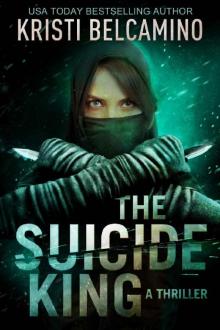 The Suicide King
The Suicide King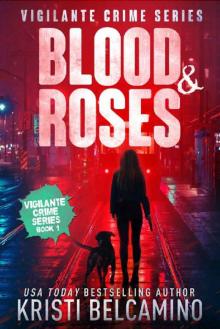 Blood & Roses (Vigilante Crime Series)
Blood & Roses (Vigilante Crime Series)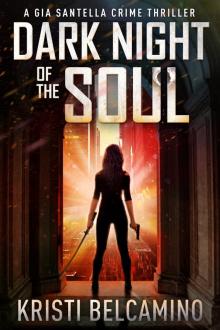 Dark Night of the Soul
Dark Night of the Soul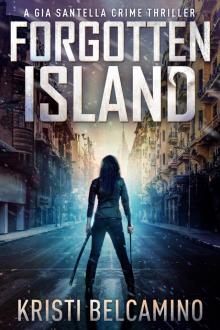 Forgotten Island
Forgotten Island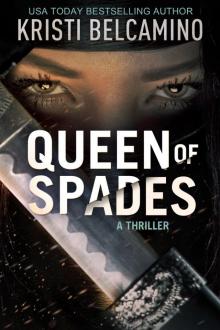 Queen of Spades
Queen of Spades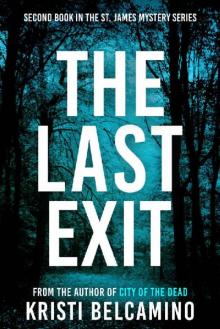 The Last Exit: A St. James Mystery (St. James Mysteries Book 2)
The Last Exit: A St. James Mystery (St. James Mysteries Book 2)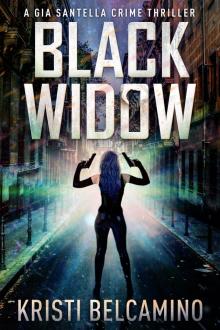 Black Widow
Black Widow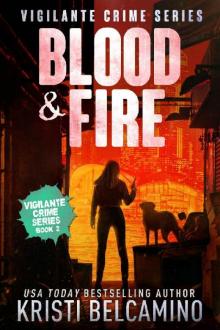 Blood & Fire (Vigilante Crime Series Book 2)
Blood & Fire (Vigilante Crime Series Book 2) End Game
End Game Buried Secrets
Buried Secrets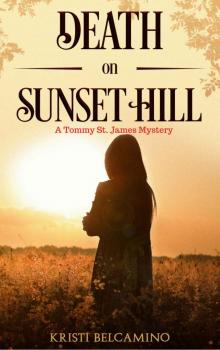 Death on Sunset Hill (A Tommy St. James Mystery Novella Book 2)
Death on Sunset Hill (A Tommy St. James Mystery Novella Book 2)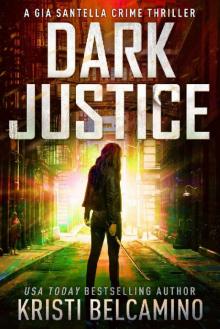 Dark Justice
Dark Justice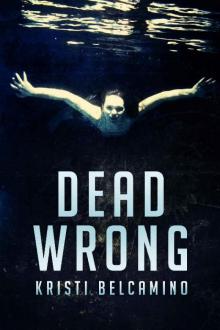 Dead Wrong
Dead Wrong No Way Out
No Way Out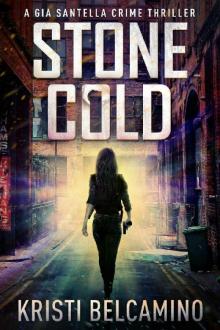 Stone Cold
Stone Cold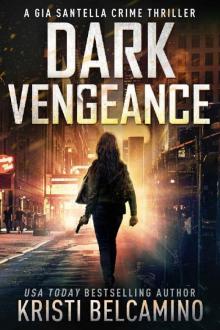 Dark Vengeance
Dark Vengeance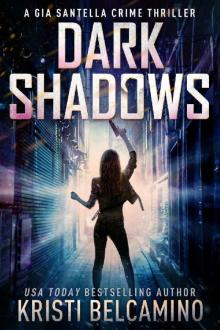 Dark Shadows (Gia Santella Crime Thrillers Book 11)
Dark Shadows (Gia Santella Crime Thrillers Book 11)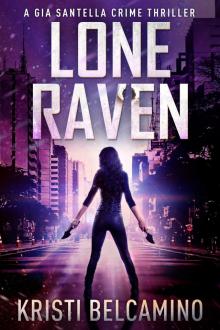 Lone Raven
Lone Raven![[Gia Santella 01.0] Gia in the City of the Dead Read online](http://i1.bookreadfree.com/i/03/16/gia_santella_01_0_gia_in_the_city_of_the_dead_preview.jpg) [Gia Santella 01.0] Gia in the City of the Dead
[Gia Santella 01.0] Gia in the City of the Dead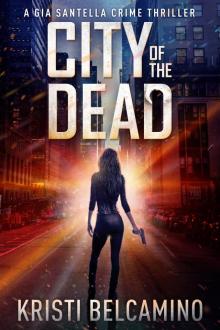 City of the Dead
City of the Dead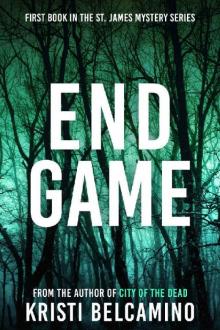 END GAME: A St. James Mystery (St. James Mysteries Book 1)
END GAME: A St. James Mystery (St. James Mysteries Book 1)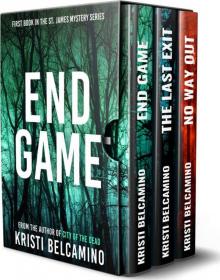 Tommy St James Mysteries Boxed Set
Tommy St James Mysteries Boxed Set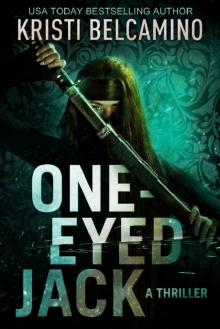 One-Eyed Jack
One-Eyed Jack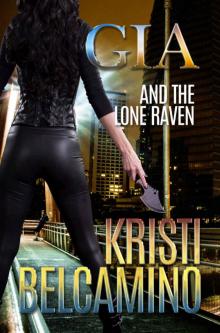 Gia and the Lone Raven
Gia and the Lone Raven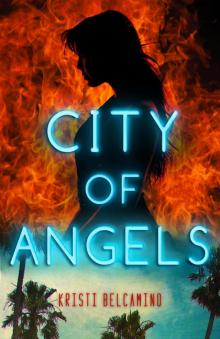 City of Angels
City of Angels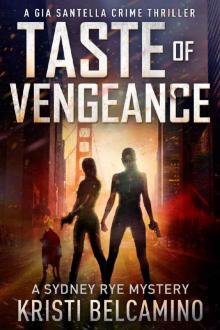 Taste of Vengeance
Taste of Vengeance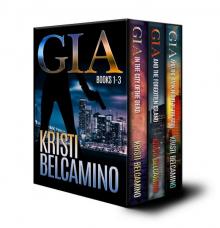 Gia Santella Crime Thriller Boxed Set: Books 1-3 (Gia Santella Crime Thrillers)
Gia Santella Crime Thriller Boxed Set: Books 1-3 (Gia Santella Crime Thrillers)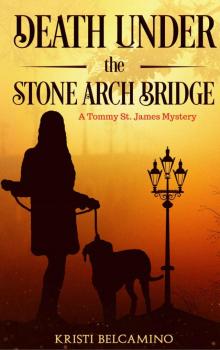 Death under the Stone Arch Bridge
Death under the Stone Arch Bridge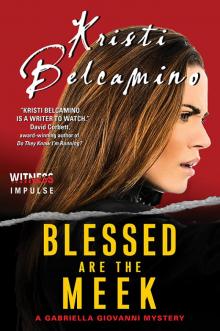 Blessed are the Meek
Blessed are the Meek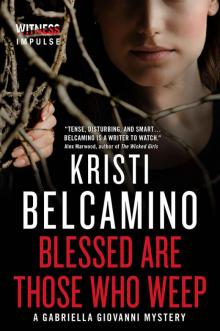 Blessed Are Those Who Weep
Blessed Are Those Who Weep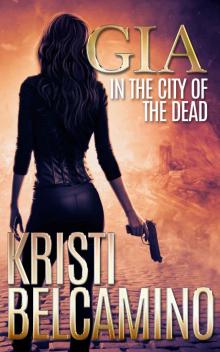 Gia in the City of the Dead
Gia in the City of the Dead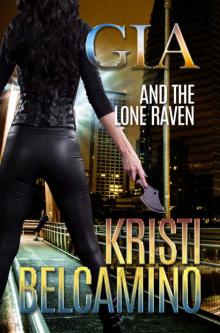 Gia and the Lone Raven (Gia Santella Crime Thriller - Novella Book 4)
Gia and the Lone Raven (Gia Santella Crime Thriller - Novella Book 4)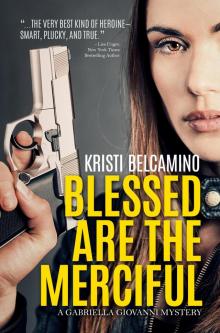 Blessed are the Merciful
Blessed are the Merciful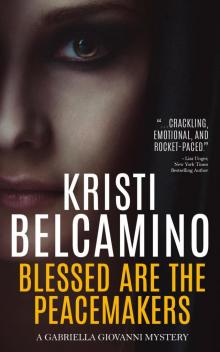 Blessed are the Peacemakers
Blessed are the Peacemakers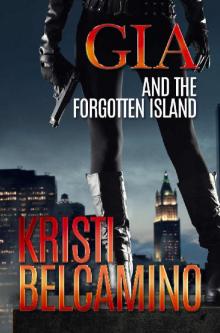 Gia and the Forgotten Island (Gia Santella Crime Thriller Book 2)
Gia and the Forgotten Island (Gia Santella Crime Thriller Book 2)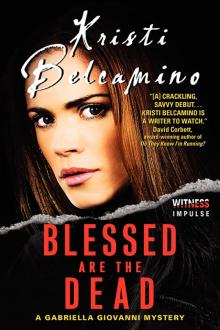 Blessed are the Dead
Blessed are the Dead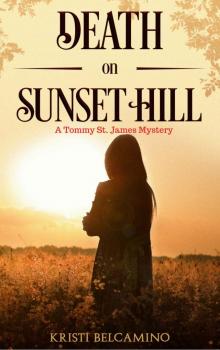 Death on Sunset Hill
Death on Sunset Hill